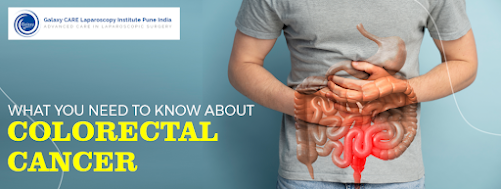What You Need To Know About Colorectal Cancer
Introduction: Colorectal cancer, a type of cancer that starts in the colon or rectum, is a significant health concern worldwide. According to the World Health Organization (WHO), it is the third most common cancer globally, with over 1.8 million new cases reported annually. This blog aims to provide essential information about colorectal cancer, from risk factors and symptoms to prevention and early detection.
Risk Factors:
- Age: Colorectal cancer is more common in individuals aged 50 and older, with the risk increasing as one gets older.
- Family history: Individuals with a family history of colorectal cancer or certain genetic conditions are at a higher risk.
- Personal history: Individuals with a history of inflammatory bowel diseases, such as Crohn's disease or ulcerative colitis, may be at an increased risk.
- Lifestyle factors: Unhealthy lifestyle choices, including a diet high in red or processed meats, low physical activity, smoking, and excessive alcohol consumption, can contribute to the risk of colorectal cancer.
Symptoms:
- Changes in bowel habits: Persistent diarrhea or constipation, as well as changes in stool consistency, may indicate a problem.
- Blood in the stool: Rectal bleeding or blood in the stool can be a warning sign.
- Abdominal discomfort: Cramps, gas, or pain in the abdominal region may be indicative of colorectal issues.
- Unexplained weight loss: Sudden and unexplained weight loss could be a symptom of various health conditions, including colorectal cancer.
Prevention:
- Healthy lifestyle: Adopting a healthy lifestyle, including a balanced diet rich in fiber, regular exercise, and limiting alcohol and tobacco use, can contribute to colorectal cancer prevention.
- Screening: Regular screenings, such as colonoscopies, can help detect precancerous polyps or early-stage cancer when it is most treatable.
- Genetic counseling: Individuals with a family history of colorectal cancer may benefit from genetic counseling to understand their risk and potential preventive measures.
Early Detection and Treatment: Early detection is crucial for successful treatment of colorectal cancer. Regular screenings can help identify and remove polyps before they become cancerous. Treatment options may include surgery, chemotherapy, and radiation therapy, depending on the stage and location of the cancer.
Conclusion: Understanding the risk factors, recognizing symptoms, and adopting a healthy lifestyle are essential components of colorectal cancer prevention. Regular screenings and early detection play a pivotal role in successful treatment outcomes. By staying informed and proactive about colorectal health, individuals can take significant steps toward reducing the impact of this prevalent form of cancer. If you have concerns about colorectal cancer or fall into high-risk categories, consult with your healthcare provider for personalized guidance and screening recommendations.



Comments
Post a Comment